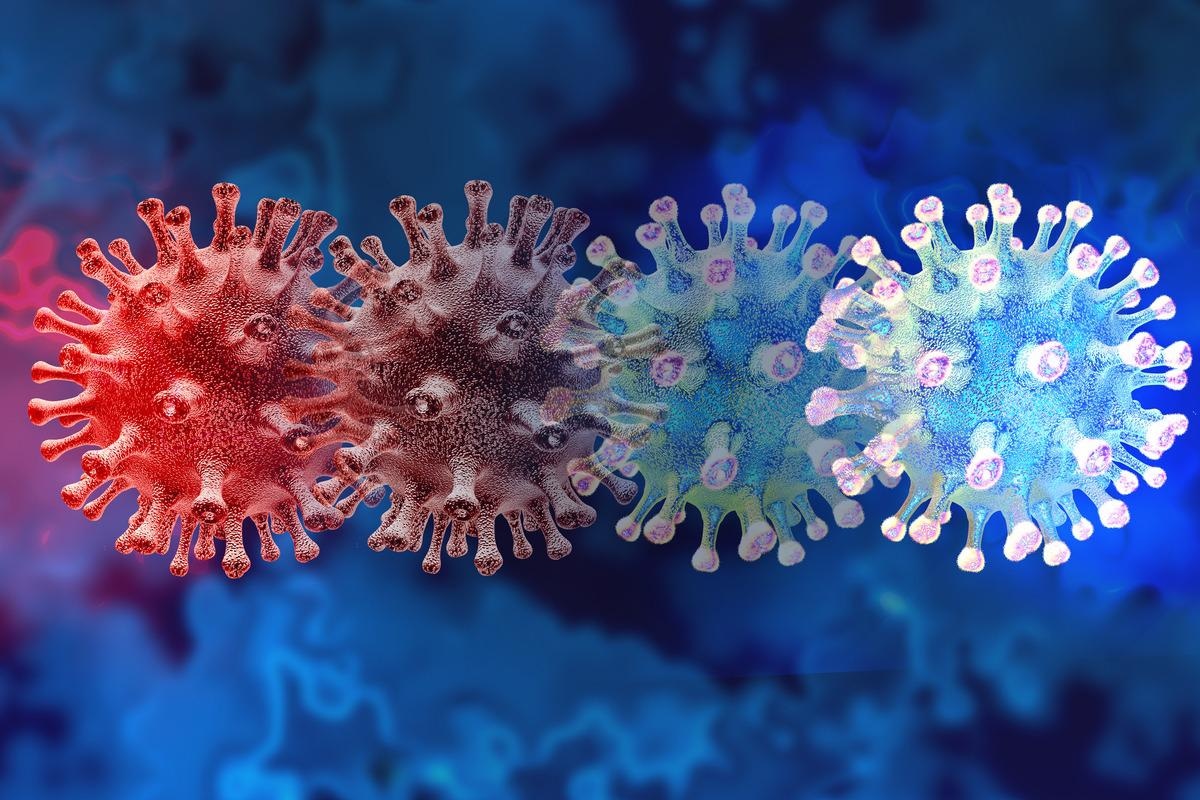The emergence of severe acute respiratory syndrome coronavirus 2 (SARS-CoV-2) led to the development and rollout of the world’s fastest and largest global vaccination programs. However, the waning of immunity over time, along with the emergence of several SARS-CoV-2 variants of concern (VOCs), highlights the requirement of better informative testing that will in turn help to determine the need and timing of a booster vaccination.
 Study: Quantitative, multiplexed, targeted proteomics for ascertaining variant specific SARS-CoV-2 antibody response. Image Credit: Lightspring/Shutterstock
Study: Quantitative, multiplexed, targeted proteomics for ascertaining variant specific SARS-CoV-2 antibody response. Image Credit: Lightspring/Shutterstock
Although first-generation tests were rolled out, they were found to overestimate the actual protective immunity against the VOCs. Current technologies that measure neutralizing antibodies (NAbs) were found to have poor clinical utility while serological approaches (ELISA or ECLIA) were found to measure only a part of the antibody response.

 This news article was a review of a preliminary scientific report that had not undergone peer-review at the time of publication. Since its initial publication, the scientific report has now been peer reviewed and accepted for publication in a Scientific Journal. Links to the preliminary and peer-reviewed reports are available in the Sources section at the bottom of this article. View Sources
This news article was a review of a preliminary scientific report that had not undergone peer-review at the time of publication. Since its initial publication, the scientific report has now been peer reviewed and accepted for publication in a Scientific Journal. Links to the preliminary and peer-reviewed reports are available in the Sources section at the bottom of this article. View Sources
A new study published in the pre-print server medRxiv* developed a ‘bait and capture’ system which was further followed by a multiplexed and targeted proteomic liquid chromatography-tandem mass spectrometry (LC-MS/MS) analyses for the comparison of immune correlates in response to vaccination, natural infection, as well as protection against the VOCs.
About the study
The current study was performed using serum samples from the COVIDsortium study where longitudinal immunological analysis had already been performed. The study included 25 healthcare workers (HCWs) with previous laboratory evidence of wild-type SARS-CoV-2 infection and 26 HCWs with no evidence of SARS-CoV-2 infection.
Thereafter, SARS-CoV-2 immunocomplex assay was carried out followed by immunocomplex protein digestion. Targeted LC-MS/MS analysis was carried out using the digested samples. Finally, an authentic virus neutralization assay was carried out.
Findings
The results reported the presence of immunoglobulins IgG1, 2, 3 & 4, IgA1, IgM, and the complement factors C1q, C4b, and C9 in the serum samples obtained from SARS-CoV-2 positive HCWs. An increase in the immunocomplex was observed with increasing exposure to SARS-CoV-2 VOCs except for the Beta variant. A wide variation in immunocomplex was reported in individuals with 2 or more antigen exposure with one individual having a dominant IgG4 response.
The results indicated that IgG1 showed the strongest correlation with live virus neutralization data (NAbs). The second strongest correlation was shown by C1q. The IgG1 reactivity against the Alpha variant was found to be 37 to 51 percent higher than the Wuhan Hu-1 strain, for Delta similar reactivity was observed between this variant and the Wuhan Hu-1 strain, and for Beta, the reactivity was 52 to 55 percent of the original strain.
Changes in the IgM levels were observed only in the infection naïve group following vaccination while in some individuals changes in levels of IgG2 and IgG4 were observed. A higher IgA1 response was observed in individuals with only natural infection.
Furthermore, a higher IgM response accompanied by greater complement C4 and C9 binding was observed for Delta and Alpha VOCs. However, C1q binding was found to be independent of C4 and C9 since it showed a reduction in binding against Delta and Beta VOC. Also, it was observed that C1q had an overall stronger correlation with NAb as compared to IgG1.
The current study was, therefore, able to demonstrate the antibody responses in non-hospitalized healthcare workers approximately 3 weeks post-vaccination. Although LC-MS/MS multiplex assay is a research standard assay, it was designed so that it could be easily translated into clinical laboratory settings. Further research needs to be carried out to determine the effect of antibody response over time, the severity of infection from different variants, and the change in immunocomplex with age that would provide a better understanding of the evolving antibody-mediated immune response to SARS-CoV-2.
Limitations
The study had one significant limitation. It could not determine functional complement activation.

 This news article was a review of a preliminary scientific report that had not undergone peer-review at the time of publication. Since its initial publication, the scientific report has now been peer reviewed and accepted for publication in a Scientific Journal. Links to the preliminary and peer-reviewed reports are available in the Sources section at the bottom of this article. View Sources
This news article was a review of a preliminary scientific report that had not undergone peer-review at the time of publication. Since its initial publication, the scientific report has now been peer reviewed and accepted for publication in a Scientific Journal. Links to the preliminary and peer-reviewed reports are available in the Sources section at the bottom of this article. View Sources
Journal references:
- Preliminary scientific report.
Doykov, I. et al. (2022). Quantitative, multiplexed, targeted proteomics for ascertaining variant specific SARS-CoV-2 antibody response. medRxiv. doi: https://doi.org/10.1101/2022.02.14.22270845 https://www.medrxiv.org/content/10.1101/2022.02.14.22270845v1
- Peer reviewed and published scientific report.
Doykov, Ivan, Tomas Baldwin, Justyna Spiewak, Kimberly C. Gilmour, Joseph M. Gibbons, Corinna Pade, Catherine J. Reynolds, et al. 2022. “Quantitative, Multiplexed, Targeted Proteomics for Ascertaining Variant Specific SARS-CoV-2 Antibody Response.” Cell Reports Methods 2 (9): 100279. https://doi.org/10.1016/j.crmeth.2022.100279. https://www.sciencedirect.com/science/article/pii/S2667237522001564.